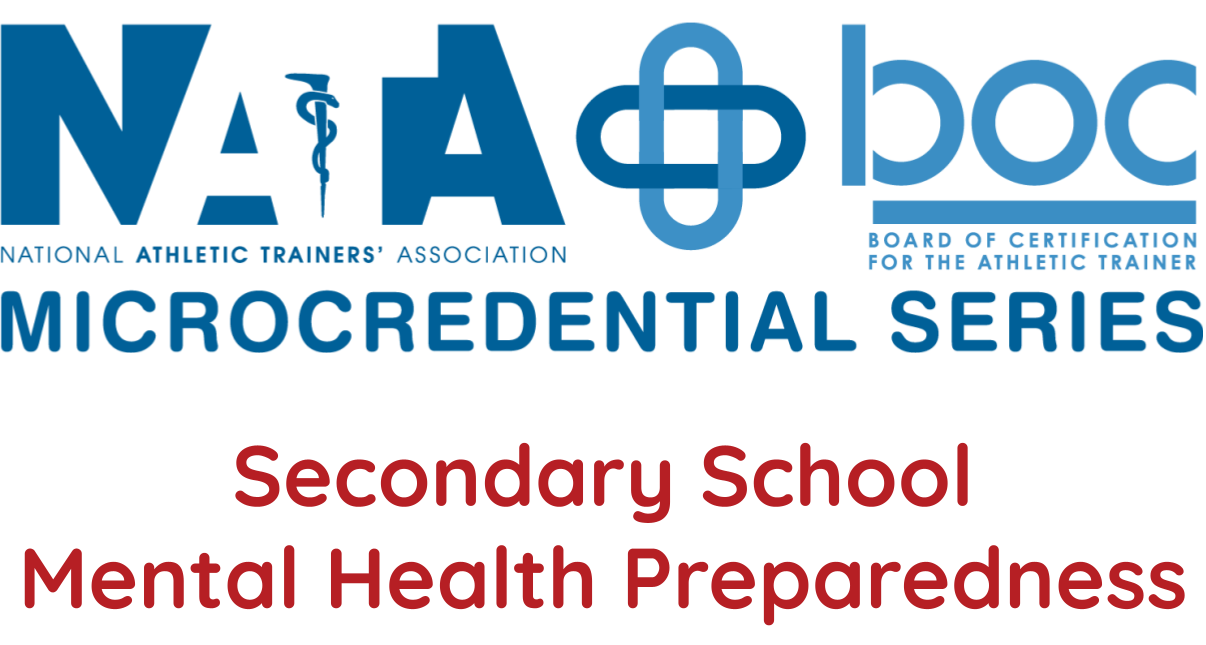
Dani Moffit, PhD, LAT, ATC
Dr. Moffit is the Program Director of the Master of Science in Athletic Training program at Idaho State University. Prior to teaching at the post-secondary level, Dani taught and was an athletic trainer for the Meridian School District in Meridian, Idaho for 10 years. She volunteers her time with the profession, including work with the National Athletic Trainers’ Association, the Commission on Accreditation of Athletic Training Education, the Board of Certification, and the Pocatello Free Clinic. Dani’s current research passions range from sexual harassment perceptions in athletic training to cultural education in health professions.
Content Where I Am Featured
-
Contains 5 Component(s), Includes Credits
Research documents that discrimination and harassment directed toward lesbian, gay, bisexual, transgender, and queer/questioning (LGBTQ+) individuals are ongoing and prevalent in the workplaces in the United States. An exploratory study to identify athletic trainer's attitudes and beliefs about bullying and harassment of LGBTQ+ individuals in the workplace will be the impetus for attendees to self-reflect on their own biases and treatment towards those who identify with that population. Professionalism and patient-centered care will be addressed to better understand how athletic trainers can be ally's in their workplace.
-
Register
- Non-member - $25
- Member - Free!
- Student - Free!
- Staff - Free!
- Certified Student - Free!
- Retired - $15
- More Information
-
Register
-
Contains 6 Component(s), Includes Credits
Sexual harassment is a growing concern in all settings. Athletic trainers should feel safe in their jobs. Athletic training students should feel safe in their programs, in both didactic or clinical settings. Furthermore, patients should experience a safe space while under the care of an athletic trainer. While the CAATE, BOC, and NATA have standards and a Code of Ethics to keep the student, patients, and practitioners safe, recent developments demonstrate that there is something missing from education and/or understanding what constitutes sexual harassment.
-
Register
- Non-member - $18.75
- Member - Free!
- Student - Free!
- Staff - Free!
- Certified Student - Free!
- Retired - $11.25
- More Information
-
Register
-
Contains 5 Component(s), Includes Credits
Sexual harassment is a growing concern in all settings. Athletic trainers should feel safe in their jobs. Athletic training students should feel safe in their programs, in both didactic or clinical settings. Furthermore, patients should experience a safe space while under the care of an athletic trainer. While the CAATE, BOC, and NATA have standards and a Code of Ethics to keep the student, patients, and practitioners safe, recent developments demonstrate that there is something missing from education and/or understanding what constitutes sexual harassment. Additionally, it is imperative that practitioners and students understand how to protect themselves as well as where to report issues that may occur.
-
Register
- Non-member - $43.75
- Member - Free!
- Student - Free!
- Staff - Free!
- Certified Student - Free!
- Retired - $26.25
- More Information
-
Register
Please Login
Announcements
Statements of Credit
Statements of Credit for NATA 2025 & NATA EducATe courses can be found on the My Transcript page of NATA EducATe. Statements of Credit from NATA 2024 and prior can be accessed from the Statements of Credit Portal by entering the last name and email used to register for convention.
Reporting Period Update
Certification renewal requirements for the 2024-2025 reporting period are due to the BOC by Feb. 2, 2026 at 5 p.m. CST. For more info or questions, visit bocatc.org or email boc@bocatc.org.
NEW to NATA EducATe?
Review our Getting Started page to learn how to navigate the site, locate your statements of credit, view previously completed courses, and search our catalog for available courses.
Expiration Date Policy for Enhanced Access On-Demand Courses
All courses in our Enhanced Access On-Demand Catalog will expire at the end of the membership year on December 31 at 11:59 p.m. CST. Visit our FAQ page for additional details.

The NATA Leadership Institute equips athletic trainers with skills, mentorship, and experiences that strengthen the profession today and shape its direction for tomorrow.
Registration Open Dec. 1 - Feb. 6

